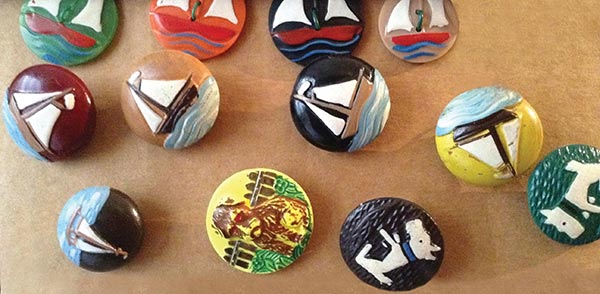 |
|
Parisian collector Brigitte Renaud opens the doors of her haberdashery for an exclusive visit. [Photo by Marine Orlova/China Daily] |
Buttons designed for children's fashion are among the cutest ones in Renaud's collection. Brightly coloured and made of wood, plastic or ceramic, they often represent small animals or cartoon characters. "Before the '60s, people spent a lot of time making children's clothes," she explains. "Though expensive, the buttons really mattered – they were the icing on the cake." When asked about the fragility of porcelain or glass buttons, she answers: "They can last for years with good care. Keep in mind that these materials were used before the '50s and the invention of the washing machine. People washed their clothes by hand – and probably less often than we do now."
It's unfortunate that today's fashion landscape gives less importance to buttons – all the more so as they're a reliable indicator of a garment's quality. But the good news is you can change the buttons of your clothes to make them your own and give them a second life. To choose the right ones, remember that they must subtly enhance your look without grabbing all the attention. "One must first notice how stylish your jacket is, not how amazing your buttons are," says Renaud. Keep the biggest ones for your coats – trimmed ones are very elegant on fur – and pick some tiny glass ones to accessorise your silk shirts. Why not fasten a large cape with a single stylish button, à la Schiaparelli? But definitely use a solid sewing thread – or you may lose your precious treasures!